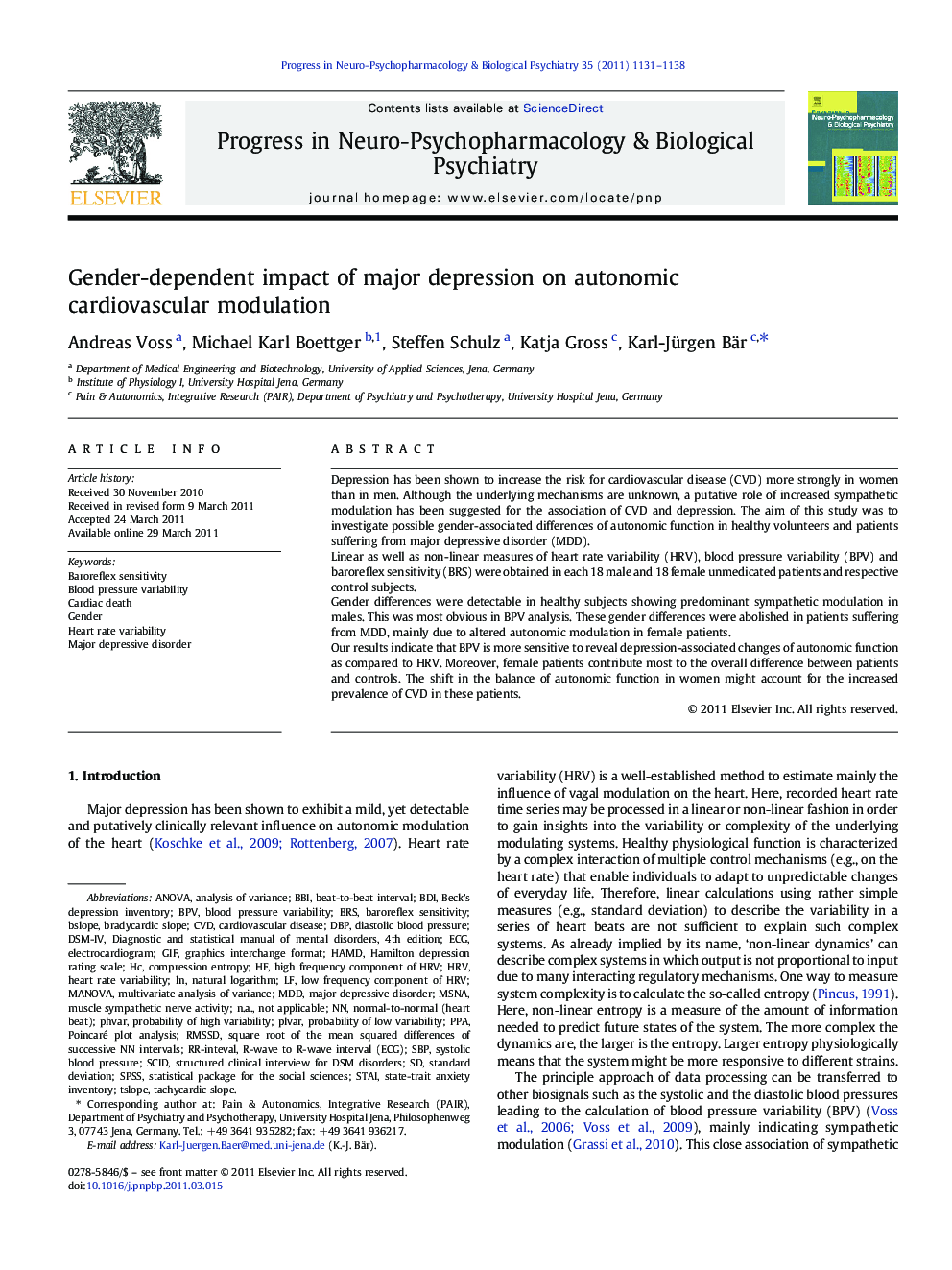| Article ID | Journal | Published Year | Pages | File Type |
|---|---|---|---|---|
| 2565259 | Progress in Neuro-Psychopharmacology and Biological Psychiatry | 2011 | 8 Pages |
Depression has been shown to increase the risk for cardiovascular disease (CVD) more strongly in women than in men. Although the underlying mechanisms are unknown, a putative role of increased sympathetic modulation has been suggested for the association of CVD and depression. The aim of this study was to investigate possible gender-associated differences of autonomic function in healthy volunteers and patients suffering from major depressive disorder (MDD).Linear as well as non-linear measures of heart rate variability (HRV), blood pressure variability (BPV) and baroreflex sensitivity (BRS) were obtained in each 18 male and 18 female unmedicated patients and respective control subjects.Gender differences were detectable in healthy subjects showing predominant sympathetic modulation in males. This was most obvious in BPV analysis. These gender differences were abolished in patients suffering from MDD, mainly due to altered autonomic modulation in female patients.Our results indicate that BPV is more sensitive to reveal depression-associated changes of autonomic function as compared to HRV. Moreover, female patients contribute most to the overall difference between patients and controls. The shift in the balance of autonomic function in women might account for the increased prevalence of CVD in these patients.
Research highlights► BPV indicates depression-associated autonomic dysfunction more sensitively than HRV. ► Females contribute most to the overall difference between patients and controls. ► Female MDD patients show a sympathetically-dominated state.
